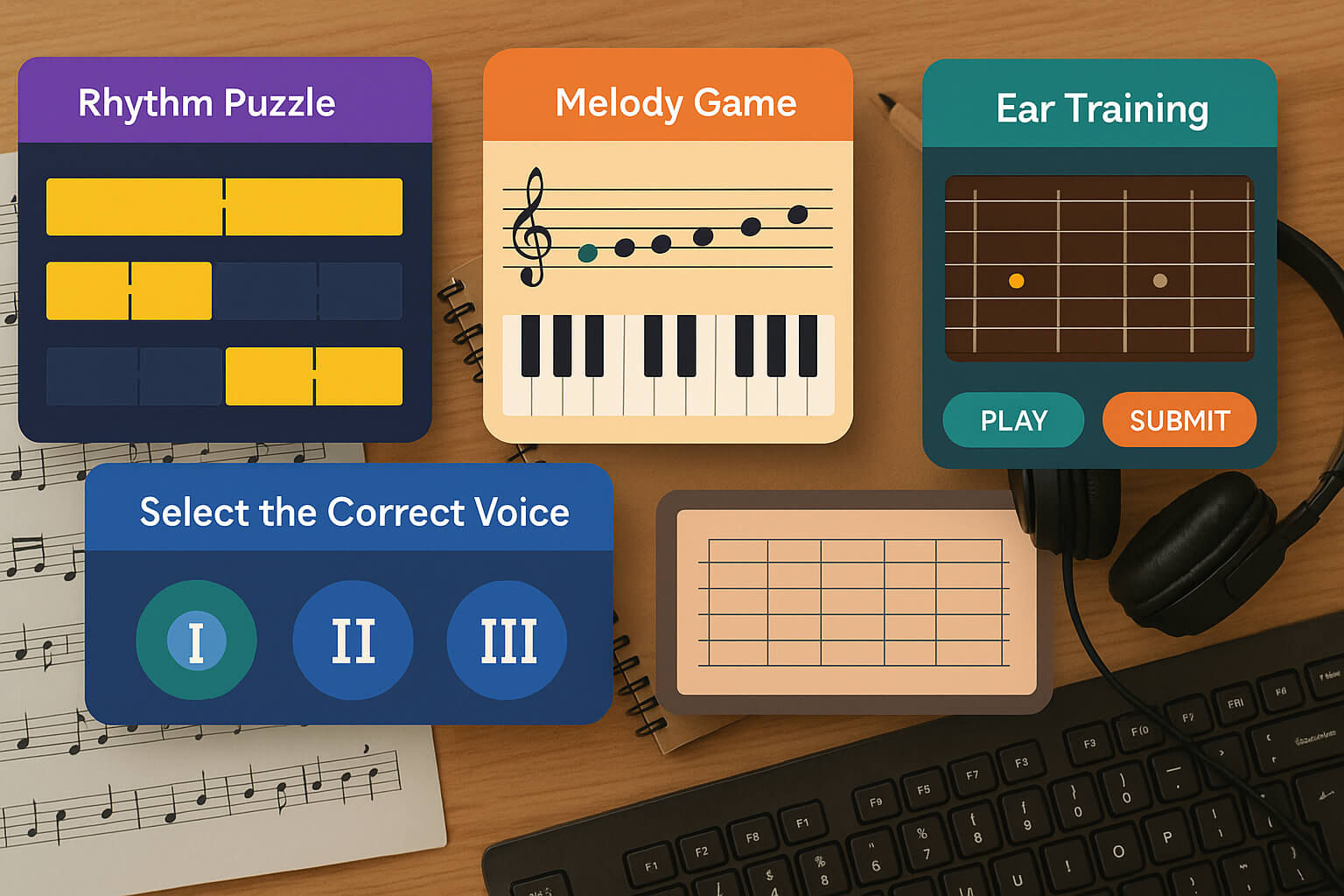August 10, 2025

Whether you're a music student, a bedroom producer, or a professional looking to sharpen your aural skills, developing a great musical ear is essential. The good news? You don’t need expensive courses or dry theory books to get there. Free music games and ear training apps are now more engaging, interactive, and accessible than ever—turning ear training into a daily habit you’ll actually look forward to.
Below is a carefully curated list of the best free ear training games and tools that combine education with entertainment. Plus, you’ll find RocketPages learning guides that pair perfectly with these tools to round out your practice.
ToneGym turns ear training into a full-blown gamified experience. You'll work through addictive challenges like:
It features player rankings, achievement levels, and daily missions, making it perfect for competitive learners. You can monitor your progress, unlock harder levels, and focus on specific weaknesses.
Ideal for: All skill levels, music producers, and theory students
This browser-based platform includes dozens of ear games focused on pitch, intervals, chords, rhythm, and even style recognition. Highlights include:
Each game is split into levels, and the first three are always free. It’s one of the most educationally structured systems for developing relative pitch and rhythm awareness.
Ideal for: Beginners, music educators, classroom use
EarBeater is a straightforward and robust ear training suite available entirely online. It includes:
Its interface is clean and no-nonsense, making it great for those who want focused practice without distractions.
Ideal for: Classical learners, teachers, DIY students
TonedEar is minimalist but surprisingly effective. You won’t find fancy animations, but its exercises get the job done. Practice areas include:
Because it’s browser-based and requires no login, it’s a great “open-and-go” tool when you want quick practice.
Ideal for: Casual practice sessions, fast learners
GNU Solfège is a downloadable open-source software available for Windows, Linux, and macOS. It offers a customizable ear training program that includes:
Though the interface is dated, it's powerful and ideal for learners who want full control over their training exercises.
Ideal for: Intermediate and advanced musicians, Linux users
This site features lightweight, interactive exercises with quick rounds and immediate feedback. Game modes include:
It’s one of the fastest ways to squeeze in 5–10 minutes of practice without logging in or downloading anything.
Ideal for: Daily warm-ups, microlearning sessions
Tune Hopper is a colorful, retro-style iOS game where you help a frog leap across tiles that correspond to musical intervals. It’s designed for younger players or anyone new to ear training who wants to internalize pitch distance using both visuals and sound.
It’s especially helpful for visual learners who benefit from “seeing” music patterns as well as hearing them.
Ideal for: Kids, beginner musicians, gamified learners
The broader musician community has chimed in with some all-time favorite apps and games:
These tools are highly regarded by music educators, vocalists, and producers alike.
Sometimes the best ear training happens when you’re just having fun. Here are a couple of bonus tools that aren’t designed as ear trainers—but absolutely help develop your musical memory, pitch accuracy, and listening sensitivity.
Ear training works best when paired with structured musical study. Dive deeper with RocketPages' music education guides:
Improving your ear doesn’t have to be boring—or expensive. With today’s free online music games, you can build world-class aural skills from the comfort of your phone or browser. The key is consistency and variety. Mix in serious practice with playful games, and you’ll be shocked at how much sharper your ear becomes.
Stay up to date with the latest tips, expert insights, product reviews, and step-by-step guides to help you grow, create, and succeed—no matter your industry or passion.